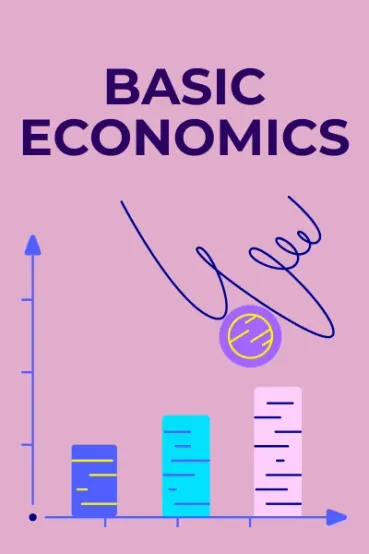
Basic Economics
Brief Summary
“Basic Economics” by Thomas Sowell, an economist and social theorist, presents fundamental economic principles in a clear and accessible manner. It is suitable for economics novices and those familiar with the subject.
Key points
Key idea 1 of 5
Fundamental principles guide economic function. Despite the form of society or people, they remain constant. To illustrate this, think of ancient Rome and grain prices. The impact of the government policies involving pricing back then would be the same now. Yes, the USA or the European Union would have the same consequences as ancient Rome.
Some may say that an economy is a system for producing and distributing goods and services necessary for our daily lives. Yet, this definition doesn't fully capture the essence of economics. For example, the Garden of Eden distributed goods and services but was not considered an economy. This is because there was no scarcity and thus no need to save. The economics study focuses on analyzing how communities decide to use limited resources with many options.
Moving on, the concept of *scarcity* implies that there is never enough of everything to fulfill everyone's wants and needs. In simpler terms, people's desires exceed the available resources, and some needs remain unfulfilled. This has been a consistent reality throughout human history. Feudal, socialist, and capitalist societies are different ways of addressing the inevitable agreement that happens due to scarcity.
Now, let's talk about *production*. Economics is not solely concerned with distributing and consuming goods and services. It is also busy with generating new output using limited resources or inputs. For instance, agricultural land can be used to grow crops for food. In addition, it can be utilized for cultivating biofuels or providing habitat for wildlife. Similarly, gold is the primary material for crafting jewelry and ornaments. Yet, it is used in electronics for its excellent conductivity.
In every economy, deciding how to allocate resources is essential to achieving its goals. How these decisions are made is crucial in determining a country's standard of living. A country with fewer resources can still have a higher standard of living. For instance, Japan's real income per capita is more than double that of Uruguay, even though Uruguay has more natural resources per capita.
Producing outputs while minimizing waste is crucial in creating efficient economies. Inefficient economies don't make use of scarce resources to their fullest potential. That results in low output. Production involves taking core resources like iron ore, wood, and petroleum as inputs rather than focusing on the final products such as gasoline, furniture, and cars. Overall, the optimal production of goods and services determines a country's prosperity and productivity.
FAQ
You may also like these summaries











